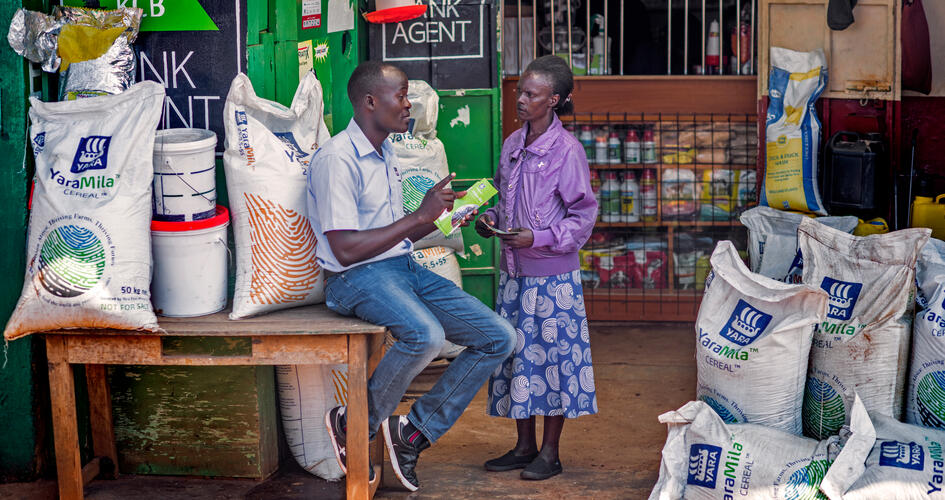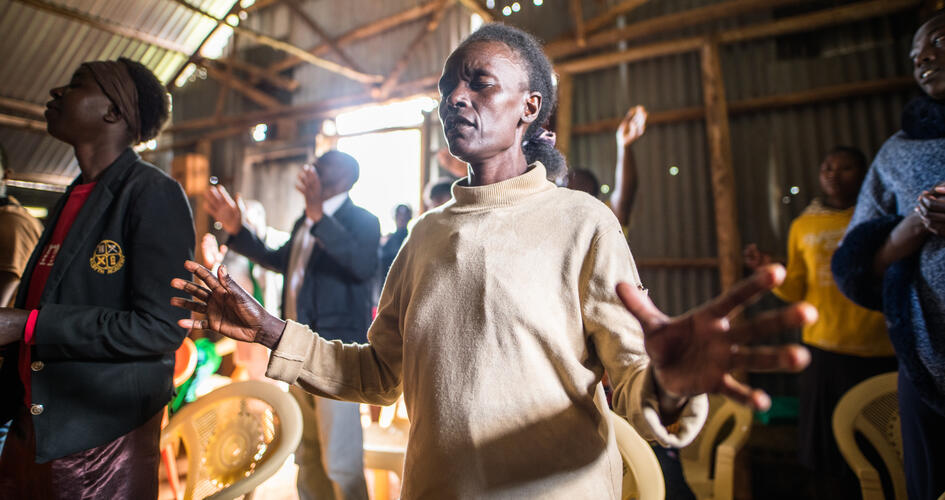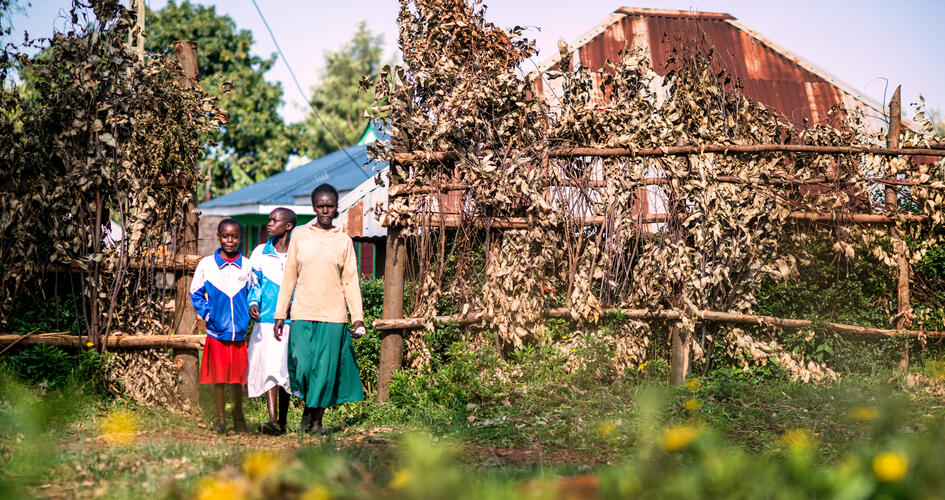Agnes Kemunto Atoko
Meet the people behind Action Africa, the initiative that enables 250.000 farmers, together with Yara, feed one million people for one year in East Africa.


Standing among all the male farmers, she seems small and fragile. Agnes' left hand, clutching a banknote, tugs on the sleeve of her jacket, betraying her feelings of uncertainty in this new situation.
“A gentleman came to our area and asked for my phone number, ID number and my full name and that’s how come I’m a beneficiary of the Yara fertilizer. On a Wednesday evening I received a text message. It said that I should go to Kibirigu to pick up fertilizer at a place called Sam Joy Agrovet,” she says, while she watches what the other farmers do when they receive their sacks of fertilizer. A farmer on a moped loaded with three sacks races past her. Around her there are other farmers who load more sacks onto pickups. Occasionally, she lowers her gaze, automatically raising her hand in front of her mouth to hide the space where her front teeth once were.
From a distance, Agnes looks like a shy, slender 13-year-old girl who does not quite know where to go. But her forehead is deeply furrowed and her dark, steely gaze reveals a hint of the life she’s lived for 45 years, here in Ramba Village, Nyamira County, Kenya.
At home with three generations of women
Agnes lives here with her three daughters, mother, brother and sister-in-law. As the eldest daughter of the home, it is up to her to care for her aging and sick mother. Agnes isn’t unusual in carrying the responsibility of several children, extended family, and maintaining the home. A majority of women here take on parenthood and all domestic work from early adolescence. On average, African woman have 5 children throughout their life.

“My greatest priority in life is my three children, and any assistance to educate them”
She is a part of the Action Africa initiative on behalf of her mother, who is too elderly to participate on her own. Besides helping her mother on the farm, Agnes works as casual labourer. She is a tea picker at Lamba Primary School, where she works for two months at a time and gets a wage of 1.500 Kes. per month, which is equivalent to around $14. When she is not working, she serves in church, where she sings and conducts the choir, named “Manywanda.”

“The fertilizer I have received today will be so good for my crop, and give me a good harvest,” she says, removing weeds with a hoe, and the way she moves her wiry arms and legs as she works tells you that she has done this for many, many years. Her greatest expectations are for the plants to grow well and possibly be of assistance to them.
Agnes’ farm covers about an acre, planted in maize, beans, millet, black eyed beans, and vegetables. Every time they have a good crop and a great harvest, they celebrate, sharing some of the outcome with the church as a way of showing appreciation, and so God will continue to protect the family at all times.

To Agnes, the fertilizer means a lot, helping her to protect her family, especially during the Covid pandemic, as her desire to ensure their wellbeing is even more acute. But more than that, Agnes is thinking about the wellbeing of the community beyond her family. “I want to share the fertilizer with my neighbours so they also can benefit from it as well.”
Related articles


























































